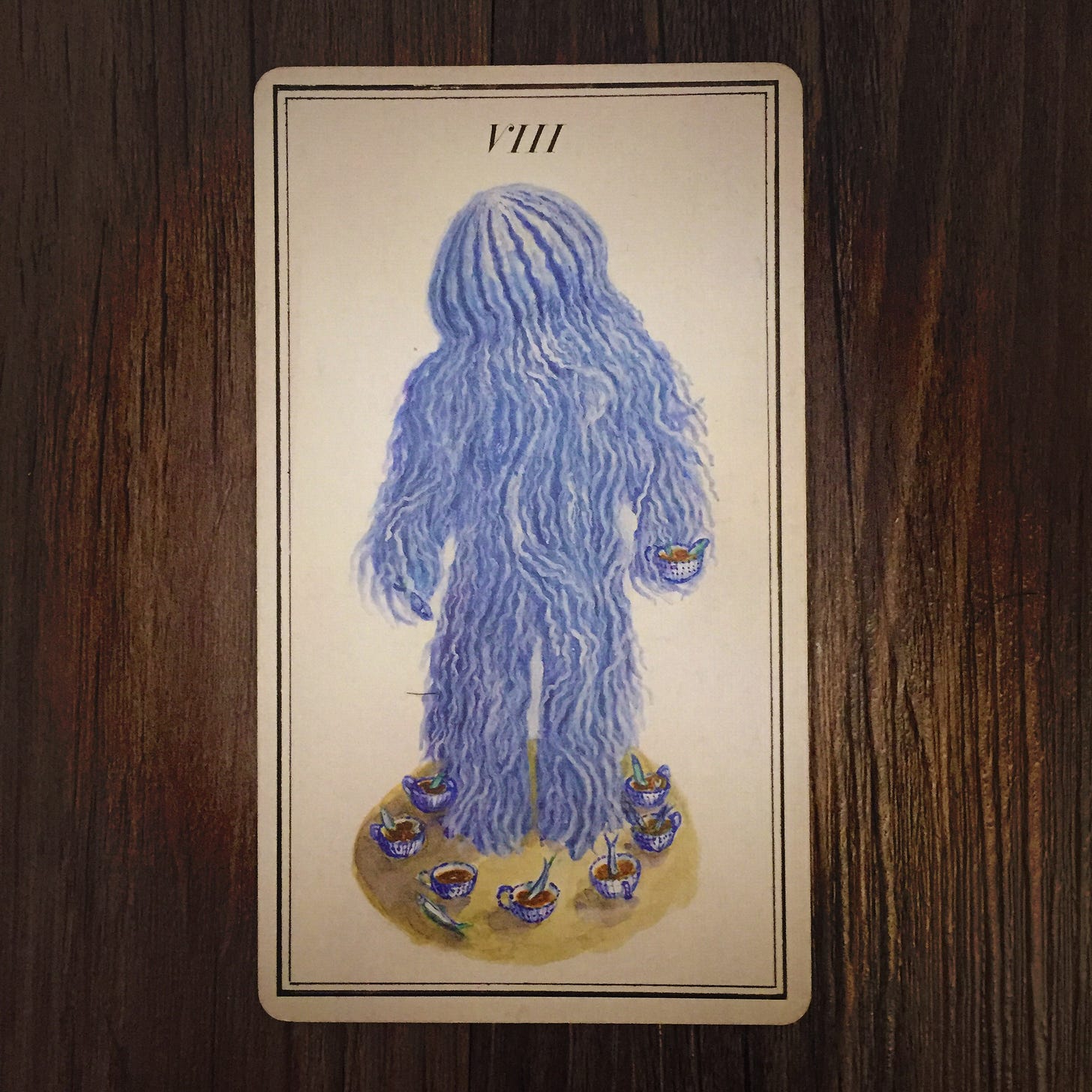MISSIVE 46
Two Curious Eights of Cups in Conversation
The True Black Tarot depicts the Eight of Cups in a novel manner:
According the accompanying book:
“A newborn baby octopus is about to leave its nest, embarking on its first adventure. It is alone in the cold darkness of the waters, and senses a simultaneous fear and excitement. It has outgrown its egg and clutch. This is the time to move on to new things, and while the unknown can be intimidating, it is also filled with new discoveries to be made.”
Simultaneously, in the Carnival at the End of the World Tarot, a similar tentacled being is depicted, though perhaps a bit older, and more cnidarian:
In its accompanying text:
“You tried first this one, then this one, then that one, then that one, then another one, and another, and another, and another; it’s all so disappointing, you just want to quit, but then you would have to figure out what to do instead. You spent a lot of time tasting and testing that you feel something should have come of it all, but now it’s only time to go— there’s nothing here for you.”
I can’t help but be reminded of William Blake’s “two contradictory states of the human soul,” innocence and experience. The first Eight is rejecting experience: overcoming ages of relying on the same community and emotional habits in the hopes of something better. The latter Eight is rejecting innocence; letting go of safety in the hopes of a fulfilling future. These two paths are ultimately convergent. Both beings are beginning anew through force of will, and letting go of everything that held them back. Mollusk and cnidarian alike must spend a section of their lives drifting among clouds of plankton, both safely helpless, at risk of never becoming anything more than whale food. If this phase never ends, they never lived.
The Eight of Cups is often associated with matters like defeating addiction, but it is, at its core, defeat of the complacent self. It is us whenever we refuse to let go, as children or adults. As an Eight, it rests under the auspices of Strength; while the animal aspects of the self want security and familiarity, there’s something compelling in our spirits that allows us to reject these, regardless of where we are in life. There are many good reasons to play things safe, but the heart will always long for something more.


